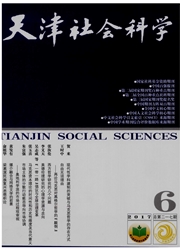

 中文摘要:
中文摘要:
腐败治理重在重构政治生态。日常生活是政治生态的根基。异化的日常生活形式不仅恶化了政治生态,而且成为腐败滋生的重要领域与根源,促成了腐败的复杂化、隐蔽化、生活化与弥漫化。日常生活批判是对生活中的异化现象的反思与揭示,追问腐败问题背后的生活现实,以此认清腐败的根源与生长机制,也有助于彻底根治腐败问题。因此,腐败的治理也需要从日常生活批判与变革的视域推进政治生态的重构,以更为本质与深层的维度彻底摧毁腐败生长的内在机制。这正是十八大以来腐败治理的路径与深层走向。
 英文摘要:
英文摘要:
The key to the rectifi cation of corruption is to reconstruct the political ecology. Daily life, however, lays a foundation for political ecology. The political ecology has worsened by the alienations of the form of daily life, which have become an important fi eld and source of corruption. Furthermore, they have resulted in the complex, concealed, daily and widespread of corruption. The critique of everyday life is to refl ect and reveal the alienation phenomenon in life, and to investigate the reality of living in the corruption, so that not only the mechanism and origin of the corruption can be clarifi ed, but also the corruption itself can be eliminated. Therefore, in order to rectify corruption, the reconstruction of political ecology needs to be promoted from the perspective of criticism and revolution of daily life, and the inner mechanism of the growth of corruption needs to be destroyed in a more essential and deeper dimension. This is precisely the deep trend and paths of the corruption rectifi cation since the 18 th CPC National Congress.
 同期刊论文项目
同期刊论文项目
 同项目期刊论文
同项目期刊论文
 期刊信息
期刊信息
